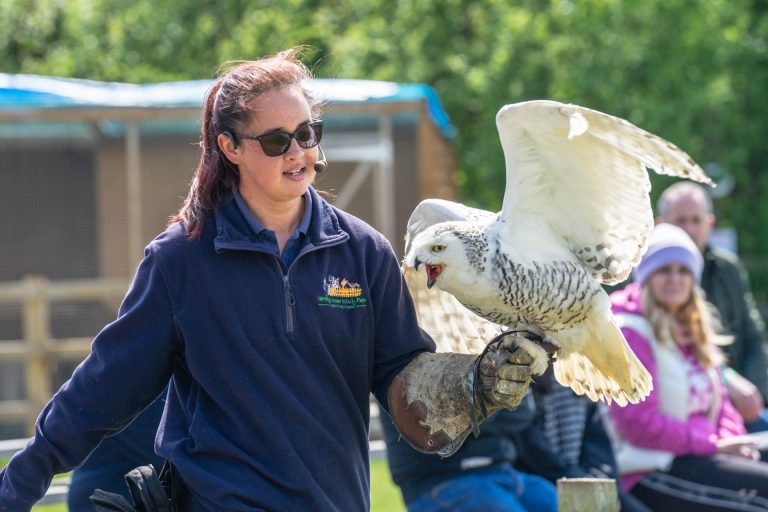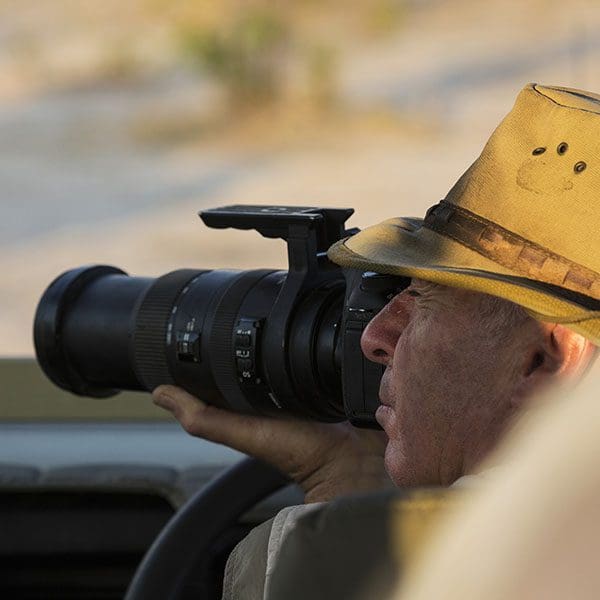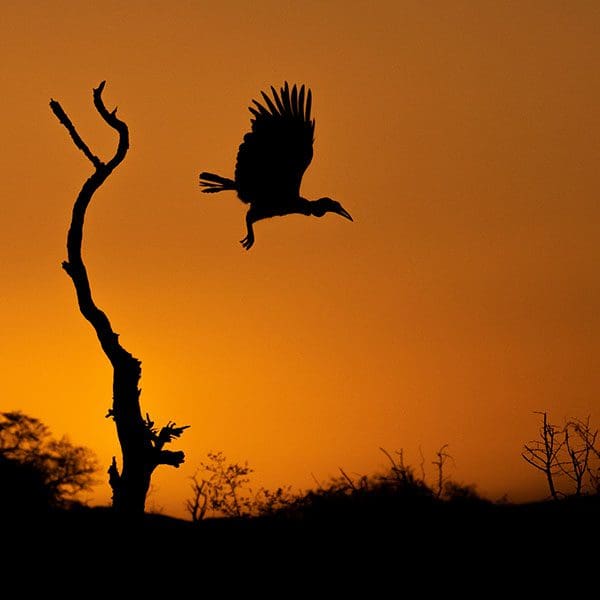High Educational Value
Nationally recognized educational quality at an affordable price.
*Source: O*Net/U.S. Bureau of Labor Statistics. Unity Environmental University cannot guarantee employment. Salary data represents averaged earnings for the occupations listed and includes workers at all levels of education and experience.

Conservation challenges often arise and taking a transdisciplinary approach to solving those challenges is key. You will play the role of a state biologist evaluating the status and habitat of a local threatened species under consideration for the endangered species listing process. You will be required to investigate the biology, habitat requirements, and current viability of their target species, as well as the quality of the local habitat.

Strong communication skills and professional interactions with key stakeholders is of growing importance in wildlife management. You will progress through a model of the Structured Decision Making (SDM) process to address a wildlife management issue. After examining the scenario and involved parties, students make recommendations on key elements of the SDM process.

Why do humans make decisions? The answer to this question involves both psychology and economics. You will explain how cognitive, emotional, cultural, and social factors impact human decision-making in the context of pro-environmental or sustainable marketing and branding.

Wildlife Conservation and Advocacy is about protecting animals and their homes while finding sustainable solutions to the challenges they face. In this program, you’ll learn how to blend science with social strategies to promote wildlife conservation. From learning about animals to understanding how to communicate effectively, it’s hands-on and interactive. You’ll gain skills in research, data analysis, and community engagement to make a real difference in wildlife conservation, whether it’s on a local or global scale.
The MPS in Wildlife Conservation and Advocacy provides students with the knowledge and skills to promote the conservation of wildlife and their habitats and advocate for sustainable solutions to the challenges facing wildlife. By combining principles of social science with ecological conservation and management techniques, the program prepares students to engage in campaign strategies, advocacy, and communication to promote wildlife conservation at local, national, and international levels.
Through interactive coursework, students learn research methodologies, data analysis, science communication, and how to engage with people and communities to reach conservation goals. Graduates will be prepared for careers with government agencies, non-profit organizations, private sector firms, or academia. The degree provides a unique and interdisciplinary education to prepare students to develop sustainable conservation solutions that benefit both people and wildlife.
Your online education should be affordable and manageable. Thanks to our promise to keep tuition flat through 2030, you won’t be burdened with unexpected increases or fees.
Our team of distance education concierges will work with you through the admissions process to help you plan and pay for your degree. Learn more about the costs here.
The timeframe for completion is up to you! Enroll in 6 credits per term and complete the program within just one year. Alternatively, opt for part-time study by taking one course at a time. Whichever path you choose, we’re here to support your educational journey every step of the way. Contact your concierge or advisor to create your personalized plan.
Research Core: 15 credits
Major Program Core: 15 credits
For course requirements and a better look into your program, view our full course catalog. Then apply online for free to get started.
The Master of Professional Science (MPS) is a graduate degree designed to combine scientific knowledge with practical skills relevant to the workforce. Unlike traditional science degrees, the MPS emphasizes hands-on experience and professional development, preparing students for careers that require both expertise in science and the ability to apply that knowledge in real-world contexts. MPS programs focus on a range of skills that are directly applicable to the workplace:
The MS degree is a traditional graduate program focused on deepening scientific understanding through research and academic study.
The wildlife conservation and advocacy degree requires 30 credits with a minimum 3.0 GPA. View our full course catalog for a better look into your program. Then apply online for free to get started.
Nationally recognized educational quality at an affordable price.
Committed to sustainable practices to prepare for a future of environmental awareness.
Dedicated to turning career and academic aspirations into tangible achievements.
Fast-track your Master’s degree and finish your program in as little as one year.
Connect with experts who share your passion for working in the industry.
Ranked #1 independent university in the U.S. by the Social Mobility Index.
With up to 5 terms a year, you can take a break without jeopardizing financial aid.
Balance life, work, and education by studying when and where you want.